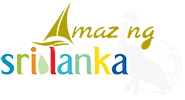The Importance of Learning Your Mother Language
By Ama H. Vanniarachchy
Learning one’s mother language is not just important—it’s essential. From the moment we are born, language plays a central role in shaping our identities, facilitating communication, and connecting us with our culture, heritage, and community. Here are 800 words elaborating on why learning your mother language is crucial and a necessity:
Identity and cultural connection
Our mother language is more than just a means of communication; it’s a fundamental part of who we are. It reflects our cultural heritage, traditions, and values, serving as a link to our ancestors and the generations that came before us. When we learn and speak our mother language, we honour and preserve our cultural identity, strengthening our connection to our roots and heritage.
Sense of belonging
Language is a powerful tool for fostering a sense of belonging and community. When we communicate in our mother tongue, we share a common bond with others who speak the same language, whether they are family members, friends, or members of our ethnic or cultural group. This sense of belonging contributes to our overall well-being and helps us forge meaningful relationships within our community.
Emotional expression and communication
Our mother language is deeply intertwined with our emotions and personal experiences. It allows us to express our thoughts, feelings, and aspirations with clarity and authenticity. When we communicate in our mother tongue, we are better able to convey the nuances of our emotions, leading to more meaningful and genuine interactions with others.
Critical thinking and cognitive development
Research has shown that learning and speaking multiple languages, including one’s mother language, can have significant cognitive benefits. Multilingual individuals often demonstrate enhanced problem-solving skills, improved memory, and increased cognitive flexibility. By learning and mastering our mother language, we exercise our brains and develop critical thinking skills that extend beyond language proficiency.
Educational achievement
Proficiency in one’s mother language lays the foundation for academic success and lifelong learning. Children who are fluent in their mother tongue are better equipped to learn additional languages, acquire literacy skills, and excel in school. Moreover, research has shown that students who receive instruction in their mother language perform better academically and are more likely to stay in school.
Preservation of cultural heritage
Many languages around the world are endangered or at risk of extinction due to globalisation, urbanisation, and cultural assimilation. By learning and preserving our mother language, we contribute to the preservation of our cultural heritage and linguistic diversity. Every language represents a unique worldview and body of knowledge, and preserving linguistic diversity is essential for the enrichment of humanity’s collective heritage.
Family and intergenerational bonding
Our mother language often forms the basis of communication within our families and across generations. It is through our mother tongue that we pass down family stories, traditions, and values from one generation to the next. Learning and speaking our mother language strengthens family bonds and fosters a sense of continuity and connection across different generations.
Professional and economic opportunities
Proficiency in one’s mother language can open doors to professional and economic opportunities both domestically and internationally. In many parts of the world, bilingualism or multi-lingualism is highly valued in the workplace, and individuals who are fluent in their mother language may have a competitive edge in the job market. Moreover, in today’s globalised world, businesses and organisations often seek employees who can communicate effectively across cultural and linguistic boundaries.
Advocacy and social justice
Language rights are human rights, and the ability to learn and use one’s mother language is essential for promoting social justice and equality. In many regions, linguistic discrimination and language policies that marginalise minority languages and communities persist. By advocating for the preservation and promotion of our mother languages, we contribute to greater linguistic diversity, inclusion, and social equity.
Personal fulfillment and empowerment
Learning and mastering our mother language is a deeply rewarding and empowering experience. It allows us to connect with our innermost thoughts and emotions, express ourselves authentically, and engage with the world around us in meaningful ways. By embracing our mother tongue, we affirm our unique identity and contribute to the richness and diversity of the human experience.
Learning our mother language is not just a choice—it’s a necessity. Our mother tongue shapes our identity, facilitates communication, and connects us with our culture, heritage, and community. It is through our mother language that we express our emotions, convey our thoughts, and pass down our traditions from one generation to the next. By preserving and promoting our mother languages, we enrich our lives, strengthen our communities, and contribute to the diversity and richness of the global linguistic landscape.
The post The Importance of Learning Your Mother Language appeared first on Ceylon Today.
